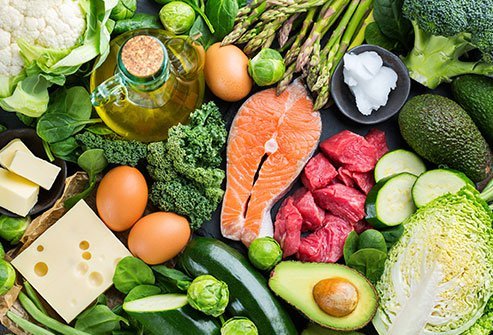What Is Dietary Fiber?

Dietary fiber is a type of complex carbohydrate that is not digested or absorbed in the small intestine. It is a component of plant material in the diet that is resistant to enzymatic digestion in humans and consists of cellulose and non-cellulosic polysaccharides, such as hemicelluloses, pectin, gums, mucilage and lignin.
- Dietary fibers can influence how other nutrients and chemicals are absorbed by altering the nature of the contents of the gastrointestinal tract (gut).
- Diets high in fiber, such as cereals, nuts, fruits and vegetables, offer nutritional health benefits, such as being linked to a lower incidence of several diseases, including diabetes, high blood pressure and obesity.
According to recommendations, women require 25 grams of fiber and men require 38 grams per day, which can be obtained by making simple swaps and smart choices for meals and snacks.
What are the different types of dietary fiber?
There are several forms of fiber, but the three most crucial for overall health and nutrition including the following:
- Insoluble fiber: This fiber is not soluble in water, which means it retains water and promotes a larger, bulkier and more regular bowel movement, potentially preventing disorders such as diverticulosis and hemorrhoids.
- Foods containing insoluble fiber include:
- Whole grains
- Unflavored and unsweetened corn bran, including popcorn
- Wheat bran (ready-to-eat bran flakes cereal)
- Seeds and nuts
- Potatoes with skin
- Fruits (such as kiwi, tomatoes) and the skins of most tree fruits (such as apples, bananas and avocados)
- Green vegetables, such as green beans, zucchini, celery and cauliflower
- Foods containing insoluble fiber include:
- Soluble fiber: Soluble in water, these fibers are fermented or used as a source of food or nourishment by colon bacteria and offer many health benefits in both the colon and the body when good bacteria grow and thrive.
- Most edible plant foods contain some soluble fiber, but the ones with the most soluble fiber are:
- Legumes (peas, lentils, most beans and soybeans)
- Oats, rye and barley
- Several fruits, including berries, plums, apples, bananas and pears
- Vegetables, such as broccoli and carrots
- Most root vegetables, such as onions, turnips and sweet potatoes
- Psyllium husk supplement products
- Most edible plant foods contain some soluble fiber, but the ones with the most soluble fiber are:
- Prebiotic soluble fiber: Soluble plant fibers that include inulin or fructan and are fermented by good colon bacteria, offering several health benefits.
- These soluble prebiotic fibers are found in high concentrations in:
- Asparagus
- Yams
- Onions
- Garlic
- Bananas
- Leeks
- Agave
- Chicory, as well as other root vegetables, such as Jerusalem artichokes
- Wheat, rye and barley (smaller amounts)
- These soluble prebiotic fibers are found in high concentrations in:
Fiber supplements offer another source of dietary fiber for people who do not get enough through their diet. Fiber supplements can also help normalize constipation and diarrhea.
What are the benefits of dietary fiber?
Increasing dietary fiber in your diet has numerous nutritional health benefits, such as:
- Heart health: Fiber can help reduce cholesterol and blood pressure, as well as prevent heart disease and stroke.
- Type II diabetes: Fiber can help reduce the progression of diabetes and may even prevent it from occurring in the first place by helping to enhance insulin sensitivity and control blood sugar levels.
- Gastrointestinal health: Fiber can help maintain better bowel movements, effectively preventing diverticulitis, constipation, gastroesophageal reflux disease and hemorrhoids. Some fibers even act as a prebiotic, fermenting in the gut and promoting the growth of beneficial probiotic bacteria.
- Weight management: Fiber-rich foods might make a person feel satisfied while consuming fewer calories, which means a high-fiber diet can help them lose more weight than a low-fiber one.
Many studies have shown the nutritional benefits of dietary fibers (prevention of diabetes, heart disease, cancer and improved immune function). However, the results vary depending on the types of dietary fibers tested and the experimental circumstances employed.
Dietary fiber consumption may have a variety of effects on nutrient absorption. Intestinal gas (flatulence), bloating and abdominal cramps can occur when a substantial amount of fiber is consumed in a short time. When the good bacteria in the digestive tract adjust to the increased fiber, the problem usually goes away.
Slowly incorporating fiber into one's diet, rather than all at once, can help reduce flatulence and diarrhea. Too much fiber can prevent minerals (such as iron, zinc, magnesium and calcium) absorption. In most circumstances, this is not a cause for alarm because high-fiber diets are typically mineral-rich.
